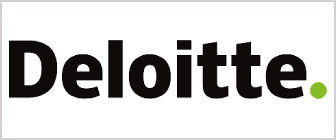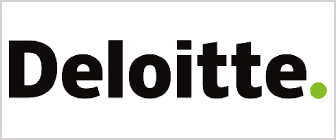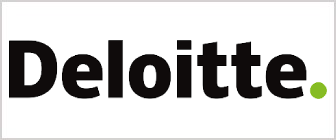What is the most significant change to your region's/jurisdiction's indirect tax legislation in the past 12 months?
In South East Asia (SEA), Deloitte has seen ongoing customs reforms in the region, based on the following themes: (i) protecting revenue collection, (ii) strengthening controls, (iii) trade facilitation and promotion. With regards to (i) and (ii), an example includes recent amendments to the Singapore Customs Act (Cap 70). This has increased the period for when Singapore Customs can go back to carry out audits and issue bills of demand from one year to five years (from 2019 onwards), which is a significant change in terms of exposure period for companies operating in Singapore and who are liable to customs and excise duties on goods imported/sold in Singapore.
It is a similar trend in other SEA countries. For example, in Malaysia, the Customs (Amendment) Act 2019 (effective 1 January 2020) has introduced many key changes to the Customs Act 1967, with a whole new section on verification procedures of goods imported using Free Trade Agreement (FTAs) benefits, which increases penalties for incorrect declaration of origin and use of Certificates of Origin under FTAs.
Vietnam, which has been a key beneficiary of foreign direct investment (FDIs) in recent times, has also recently tightened up requirements for reporting of imported materials, components, and equipment on a duty/tax suspended basis for export purposes, to check that there is no revenue leakage to the Government.
With regards to (iii) on trade facilitation, governments in SEA have tried to keep up to date with their obligations under the WTO Trade Facilitation Agreement and its goal to expedite the movement, release and clearance of goods, and to facilitate cooperation amongst members on trade compliance issues. For example, through more transparent rules, the ability to obtain rulings, and appeal and review procedures. Singapore has agreed to three new Mutual Recognition Agreements (MRAs) signed in 2019 alone (with Australia, New Zealand, Thailand) for goods to go through ‘green lane’ channels in partner countries whereby low risk companies can benefit from enhanced clearance procedures in the other country.
How do you anticipate that change impacting your work and the market moving forwards?
Regulatory changes which are implemented across various countries (whether from the perspective of protecting revenue, strengthening internal enforcement controls and/or facilitating trade), will impact companies who have global supply chains and depend on supply points/consumer locations in Asia. The recent changes are generally good for advisers like Deloitte as there will be a whole host of areas that we will be able to assist clients with, be that (i) defending audits, (ii) helping companies improve processes and controls, or (iii) helping companies benefit from trade facilitation efforts by Customs and other trade authorities. In particular, where these involve certification of existing processes e.g., AEO status which require companies to evidence robust supply chain security via internal controls and practices, which are normally prepared by and/or reviewed by Big Four firms.
It is worthwhile to note that many government administrations within South East Asia (ASEAN) remain committed that their economies remain open for business as they know that their economies depend on trade for survival. Given the current US-China trade relations, more governments in ASEAN are trying to woo multinationals looking to decentralize manufacturing operations in China and are trying to put in place incentives to attract the setting up of facilities in SEA.
Depending on the particular industry, we still see strong demand for the setting up of high tech electronics and electrical (E&E) facilities in Singapore and Malaysia, automotive related sectors in Thailand, chemicals for Indonesia, and many other industries (e.g., food, consumer appliances, etc.) for Vietnam.
What impact do you see the COVID-19 pandemic having on your work directly and on the wider tax environment, in both the short and long term?
The impact is different depending on the industry that a client operates in. Those in medical devices and related equipment (i.e., PPE, ventilators, etc.) have done extremely well as there has been a tremendous uptake to their products and services and opportunities to penetrate more markets struggling to contain COVID-19. Those in the technology and media space have also done well as more businesses utilize their equipment, platforms and services to target consumers especially during times like this when people are required to work from home.
Conversely, there are companies who, as a result of COVID-19, have seen their businesses contract and have reduced business spend. These companies now look for more ways and strategies to reduce duty/tax cost. Where previously companies may not have been keen to use FTAs (for example, because they are seen as troublesome–having to maintain relevant documentation to evidence that a particular good originates in the country of export, and the time/effort required to apply for Certificates of Origin), there has been a clear shift away from such mindset if there are duty/tax saving opportunities.
In the short term, Deloitte in SEA’s assistance to companies has been to support them (as they grapple with changes to their businesses due to COVID-19) and this has worked well for us in the past few months. In the longer-term period, however (at least 12-24 months until a vaccine is available), cash-crunched businesses are more likely to spend only where there are clear benefits or where there is clear value from a particular service offering. We continue to work on these service offerings and define their value to businesses.
Given the likely long-term implications of COVID-19 on things like remote working and digital retail, how do you see tax technology developing to accommodate this new reality and where do you think the next area of focus might be?
Absolutely, as more people and businesses work from home, the ability for service providers like Deloitte to meet clients directly and carry out meetings (whether with clients or representing clients before governments authorities), interviews, reviews, on-site audits, personnel trainings, have reduced significantly.
Without the ability to deploy technology, it will be difficult to continue providing the services that we typically provided pre-COVID-19. Hence, demand for online meeting platforms have surged to allow e-meetings both with clients and customs/tax authorities. We have also deployed survey-based technology tools and web-based questionnaires that can be sent to company personnel for completion which will automatically be fed into a system which can tabulate results and data gathering/data import solutions relying on electronic rather than physical data, and have also replaced physical trainings with e-learning modules.
In the context of customs and trade compliance, increasingly the customs/tax authorities are relying on big data to analyze trends and identify audit areas to test compliance. Companies need to be more aware of their own organization’s duty/tax positions across various jurisdictions and be able to identify potential risk areas so they can address deficiencies and make voluntary disclosures before discrepancies are picked up during an audit when the benefit of more lenient fines and penalties may no longer be available.
Moving forward, we see that there will be greater demand on data analytics tools for companies to gain visibility of their compliance positions.
What potential other legislative changes are on the horizon that you think will have a big impact on your region/jurisdiction?
If the Regional Comprehensive Economic Partnership Agreement (RCEP) is signed by the end of 2020, this would require the ASEAN+5 member states to amend domestic legislation to be in line with commitments made by the 15 member economies, including tariff reduction measures, harmonization of sanitary and phytosanitary products, licensing requirements, conformity assessments and mutual arrangements to recognize product standards.
Depending on how the FTA negotiations progress between the European Union (EU) and other ASEAN member states, this could also have an impact on legislative changes in the region. To date, only Singapore and Vietnam have effective FTAs with the EU (in the case of Vietnam, w.e.f. 1 August 2020). These changes will be beneficial to businesses generally.
Within SEA, we also see a trend in governments starting to provide more duty/tax relief to help spur consumer demand in industries affected by COVID-19. Industries typically subject to higher duty/tax rates who are likely to benefit from such measures are those in the automotive, luxury products, consumer/lifestyle products sectors. Such changes will also be beneficial to businesses.
Alongside the extensive stimulus packages that have been provided by governments in the SEA region, we anticipate a rise in tax audits and investigations by customs/tax authorities as they seek to ensure that companies are paying their fair share of taxes. Where there are deficiencies in such powers in existing domestic legislation, we can also expect that these deficiencies will be quickly rectified to help customs/tax authorities to carry on with the requisite audits/investigations.
What are the potential outcomes that might occur if those changes are implemented?
More opportunities for duty/tax efficient supply chains in the APAC region as a whole, if RCEP and/or EU-based FTAs with ASEAN member states are signed. More audit/defence work as governments seek to recover revenues from stimulus packages.
Do you think that change will have a positive effect on both your practice and the wider regional/jurisdictional market?
Yes, Deloitte’s Asia-Pacific practices are essentially built across three pillars (i) advisory work, (ii) processes design/implementation, (iii) tax audit defence and representation work. Any legislative change, whether from the perspective of trade facilitation, compliance requirements or expanding auditing powers of customs/tax authorities (or even increasing penalty rates for non-compliance) will have a positive effect on this scope of services (including the deployment of technology).
What legislative changes would you like to see be implemented that you think would have the most positive effect on your practice and the wider regional/jurisdictional market?
ASEAN is a diverse region comprising 10 different member states having different national languages, laws/regulations, enforcement practices and cultures. For the region to realise its full potential to become a single market, more needs to be done to harmonize customs/tax laws, so that there are fewer barriers to trade within ASEAN. The implementation of WTO’s various multilateral instruments promoting a freer and fairer system of trade within all of the ASEAN member states (particularly the developing and least developed countries) will help more companies invest in the region whether through setting up manufacturing operations, distribution centers, or in-country retail presence, which will have a positive effect on Deloitte’s practices and also the wider APAC region.
Do you think something like that is likely to be implemented in the near future?
The ASEAN 2025 Blueprint (Forging Ahead Together) has been created to further the goals and commitments made by the 10 ASEAN member states under the AEC 2015 Blueprint. Under the 2025 Economic Community blueprint, it is envisaged that ASEAN as a whole, should work towards being well-integrated, with a connected economy connected to global supply chains, where all member states will benefit from the economic integration, increased investments into transport linkages, infrastructure and the cross-border movement of people, goods and services.
ASEAN has come a long way since its inception (via the Bangkok Agreement in 1967) and we are optimistic that member states will continue their drive to move towards the goals stated within the ASEAN 2025 vision (slowly but surely).
What have been the biggest developments in tax technology and where do you think the next area of focus might be?
Deloitte sees the following trends in the area of global trade management and customs automated solutions:
- Certificate of origin: use of blockchain technology to authenticate certificates of origin.
- Tariff classification: use of robotic process automation and artificial intelligence to replace what is typically a largely manual determination process for HS classification.
- Customs valuation and transfer pricing: use of real-time information to monitor, adjust and manage transfer pricing and assess impact on customs valuation.
- Customs data analytics: use of import/export data analytics tool with user-friendly dashboards providing near real time insight into a company’s duty/tax position which would help tax/ finance/trade functions to identify potential risks and savings more efficiently.
As discussed above, revenue authorities are increasingly moving towards using big data to assess risk and identify targets for tax audit, relying also on more information sharing between customs and tax authorities (and other government agencies). The ability for the private sector to continue to innovate and stay ‘ahead of the curve’ will be useful counterbalance to these advances by governments in their use of data analytics for risk profiling and enforcement actions.
This document has been prepared solely for the purpose of publishing in the 2021 Indirect Tax Leaders guide and may not be used for any other purpose. This document and its contents may not be reproduced, redistributed or passed on, directly or indirectly, to any other person in whole or in part without Deloitte's prior written consent.
Deloitte refers to one or more of Deloitte Touche Tohmatsu Limited ("DTTL"), its global network of member firms, and their related entities (collectively, the "Deloitte organization"). DTTL (also referred to as "Deloitte Global") and each of its member firms and related entities are legally separate and independent entities, which cannot obligate or bind each other in respect of third parties. DTTL and each DTTL member firm and related entity is liable only for its own acts and omissions, and not those of each other. DTTL does not provide services to clients. Please see www.deloitte.com/about to learn more.
Deloitte is a leading global provider of audit and assurance, consulting, financial advisory, risk advisory, tax and related services. Our global network of member firms and related entities in more than 150 countries and territories (collectively, the "Deloitte organization") serves four out of five Fortune Global 500® companies. Learn how Deloitte's approximately 312,000 people make an impact that matters at www.deloitte.com
This communication contains general information only, and none of DTTL, its global network of member firms or their related entities (collectively, the "Deloitte organization") is, by means of this communication, rendering professional advice or services. Before making any decision or taking any action that may affect your finances or your business, you should consult a qualified professional adviser.
No representations, warranties or undertakings (express or implied) are given as to the accuracy or completeness of the information in this communication, and none of DTTL, its member firms, related entities, employees or agents shall be liable or responsible for any loss or damage whatsoever arising directly or indirectly in connection with any person relying on this communication. DTTL and each of its member firms, and their related entities, are legally separate and independent entities.
© 2020. For information, contact Deloitte Global.



